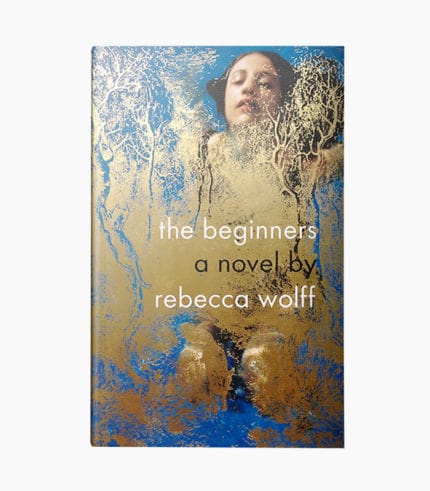
Blog
How To Publish Your First Book With Minimum Hassles

As it is with everything else in life, publishing your very first book can be hard. This is where most potential authors tend to give up. There are far too many hassles along the way, especially for those who have no experience in the publishing industry. We at Manakin Press understand this and try our best to help first-time authors get published. However, it would make your first time a lot easier if you knew how to publish your first book with minimum hassles before you even approached us. This is why we have prepared a list of common hurdles that most inexperienced authors have to face and how to avoid them.
How To Publish Your First Book With The Right Publishers
Most first-time authors don’t understand the importance of finding the right publishers. The right publishers will do more than just publishing your first book and guiding you. They will be your perfect match. It is imperative to find the best publisher for the kind of book you are writing. For example, approaching an academic publisher like Manakin Press for your work of fiction would be pointless. Each publisher has an area of expertise, and you need to find the right one for your book.
You also need to avoid unscrupulous operations posing as publishers. These are companies that will ask you to pay them for reading your manuscript or even for publishing it. If you are trying to learn how to publish your first book, one of the most important lessons is that you never have to pay the publishers. Publishers pay you in order to buy the right to reproduce your content.
Understand Your Market Before Trying To Publish Your First Book
Not knowing the market is another mistake that inexperienced authors make. This is especially important for academic writers. Academic books do not have the same volume of sale as some of the popular fiction books. Publishers of academic books need to know exactly what market the book is for. This means that before you start asking about how to publish your first book, you need to understand who it is for.
An academic book needs to conform to either a syllabus or a specialised course. Either way, you need to know the requirements for the book and the content it needs to cover. This might involve speaking to the institutions you plan to target the book at, to understand what they need. You would also be required to check what is already available in the market on the subject. If there is already plenty of content available in your subject, you need to have something new to offer. If you have nothing new or innovative to offer in your book, there is nothing compelling people to buy your book over the others in the market.
If you are not targeting your book to a specific course or educational institution, you need to know who will buy your book. Academic books sell on the reputation of their authors. If you have an audience who is dedicated enough to buy your book, that can be your market. However, it needs to be large enough for the publishers to want to publish your first book based solely on the promise of this group. Being realistic about the demand for your book is how you publish your first book without disappointing yourself.
Review Your Book Proposal Before Trying To Publish Your First Book
Many first-time authors send their book proposal to the publishers and are disappointed when they are rejected. As any publisher will tell you, new authors send very poorly done book proposals. Therefore, if you want to know how to publish your first book, you need to learn how to write a book proposal.
A book proposal, as the name suggests, is a proposal to write a book. This explains your book idea and the content that it will contain. It also explains what course or institution your book is aimed at. You explain the target audience and the projected sales volume. If you have any platform to market your book, this is where you should mention it. You need to find the niche of your book based on market research. Finally, the proposal explains what qualifies you to write the book. All of this needs to be explained in one or two pages.
The book proposal is what tells the publishers what your book is going to be about. The research and market analysis you include tells them how viable it is. It also tells them that even though it is your first book, you have planned it well. This inspires confidence in the author as the publishers can see the work that you have put in, which tells them you will not fail in delivering. How succinctly and effectively you put this across tells them how well-written your book is going to be. All these factors help you in getting your first book published.
A Manuscript Might Need Changes Prior To Contacting Publishers For Your First Book
Unless you are a writer of fiction or want to publish a memoir, you don’t have to have a manuscript ready when approaching publishers. Having a manuscript ready might be useful. However, it is worth bearing in mind that a manuscript might have to be redone or rearranged based on the publishers’ inputs. Editors understand their market very well and have an eye for what will work and what will not. Even after multiple rewrites on your manuscript, you may still have to make some major changes once the editor goes through it.
This might be quite disheartening for you if you are not prepared for it. It may be even more galling when you realise that you didn’t even need a manuscript ready for a non-fiction or academic book. You can publish your first book that is academic is by sending the publisher your book proposal first. Once they have peer reviewed and approved it, they will ask you to send in a chapter. This chapter is what they will use to review you and your writing ability.
Based on what they gauge from this chapter, they will tell you what needs to change. Depending on how much guidance they think you need, they will work with you on subsequent chapters. If you already have a manuscript ready and it is not up to their standards, you will have to rewrite it. Rewrites might have to include information that you had not included but your review panel decided was important. They might be rearranging the information to make the book flow better. It could also be that your book has errors that were picked up by the experts.
This is why it is important to know the process involved in publishing your book. Finding out how to publish your first book is difficult enough without you realising you did a lot of work for nothing. For an academic book, you can plan your book, send in a book proposal, and save needless hours of work.
Knowing How To Publish Your First Book Without Getting Into Legal Hassles
While the usage of copyrighted content is not usually a problem with fictional stories, academic books are different. These are full of equations, theories, charts, graphs, and more that might require permission to be reproduced. Most first-time authors are surprised to learn that they need the publisher’s permission to reprint their own papers that they published in journals earlier. Since publishers buy the right to reproduce any content they print, they own it. This always surprises authors who weren’t paying attention to the fine print.
Publishing a book with content containing other people’s work needs careful understanding of copyright laws. Knowing how to publish your first textbook often involves understanding legalities of citations and permissions. Some publishers will help you with getting permission from the relevant parties. Others will expect you to get it before your book is ready to be published. If you know this before you start the process of publishing your first book, you will have time to get all the permissions before your manuscript is ready.
Understand Your Rights And Duties Before Trying To Publish Your First Book
As an author working with a publisher, you are required to complete certain tasks that could affect the success of your book. The first and most obvious is completing the manuscript on time. Publishing your first book involves making sure the project runs on time. Publishers have a marketing schedule which is put into effect at least a year before the book is released. Since they have a number of books planned for the year, missing your target date might mean losing out marketing time to a book that was scheduled after you but is running on schedule.
Once your manuscript is complete, you may be required to give creative inputs. These may be for the cover artwork or for the layout of the book. You may be asked to make last minute edits. All of these would require you to respond promptly as any delays would amplify, resulting in delays in the release of your book.
Of course, it is also important to know your rights as well. When getting your first book published, it is easy to get intimidated by overbearing publishers. As mentioned earlier, no reputable publisher would ask you to pay them. The publisher always pays the writer, not the other way around. Even with a good publisher, don’t be afraid to speak your mind. You might be asked to make edits or approve creative inputs that you don’t agree with. You can always question them or not approve them. Just bear in mind that a lot of times, the editors do know better. However, that does not mean you are supposed to go along with everything just because they tell you to.
Trying to publish your first book can seem a daunting task. The truth is that just like everything else, you can avoid most major pitfalls if you’re prepared for them. If you do your research and learn how to publish your first book with all your information in place, you are bound to succeed.






